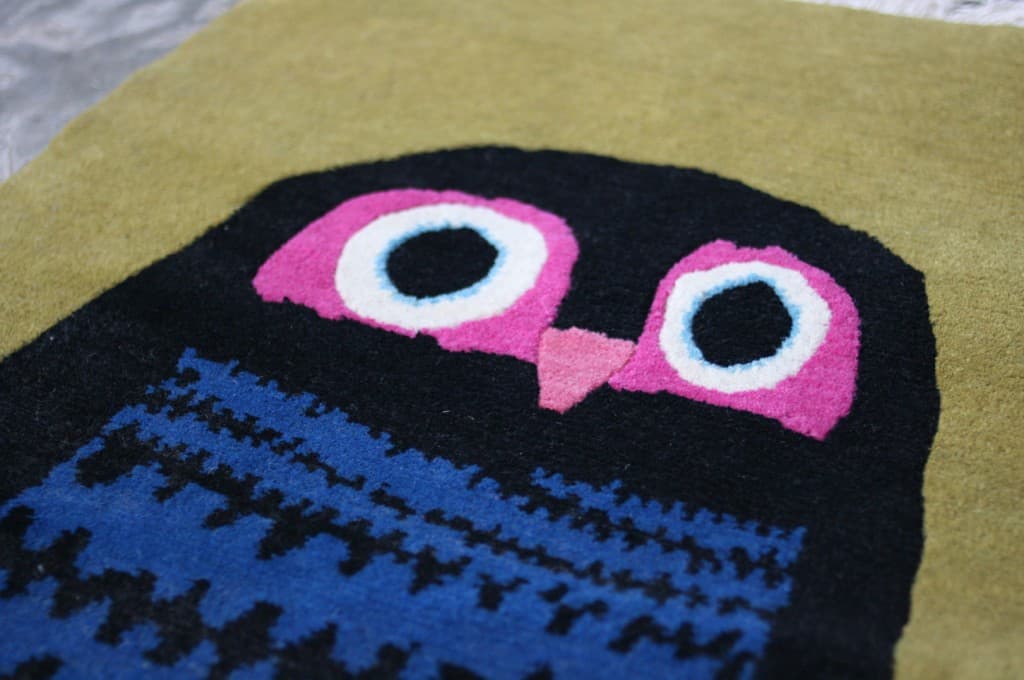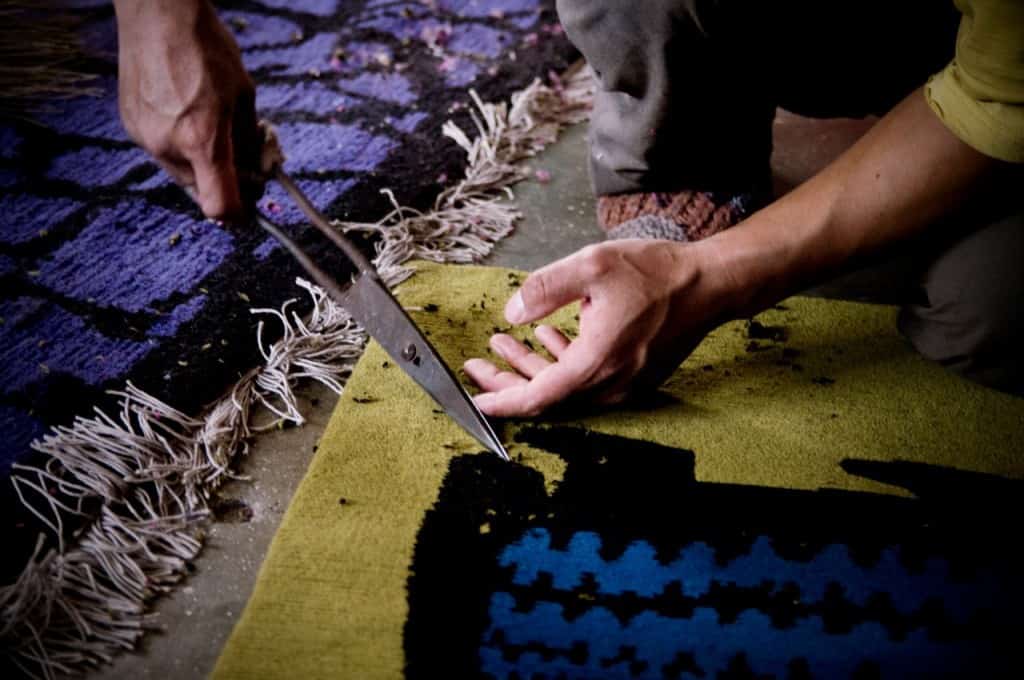Chris Haughton was listed in Time magazine’s ‘DESIGN 100’ for the work he has been doing for fair trade clothing company People Tree. He has co-founded Node a fair trade company to create rugs in Nepal. He also writes children’s books ‘A Bit Lost’ is about a lost owl and ‘Oh No, George!’ about a bad dog.
What did you do?
Together with Akshay Sthapit I set up NODE a fair trade rug making project in Nepal last year. The aim is to connect designers with third world craftspeople, help people out of poverty and support their development projects and make some nice rugs at the same time.
Why did you set up this Initiative?
I had been working with fair trade for the past seven years in London, and i admired the development work that fair trade was doing and wanted to get more involved. I took 8 months off to visit India and Nepal and see if i could create something together directly with the producers. I travelled around to see what could be made in fair trade that would best use design together with craft. The main reason I set it up was to help out the development project, their crafts are of very high standard but the design is not at the same level and so it made sense to rope my designer friends into this too. As it turned out there were plenty of things that we could work on and this has develope
d into much larger projects than i had first envisioned.
What is your role in the network of makers, producers, sellers etc?
I noticed that there was an opportunity when I posted images of the rugs on my blog. People from all over the place emailed to enquire about buying them and as my blog is followed by many designers people also wanted to ask if they could design their own one. I spent a frustrating year unable to do anything as i didn’t have the facility to receive payment for customers and at the same time the complex bank charges/import duties and logistics made it prohibitive for other designers to order single rugs and have them shipped. I spoke about this to my nepalese friends and
Akshay who specialises in logistics and imports solved it.
I have hosted exhibitions to launch our rugs and got the Design Museum stocking us. We hope to connect more designers and do a large exhibition in the Design Museum London shop later in the year. I am trying to steer clear of organising as i am more of a designer and am currently looking for someone to ideally take over this role. Im very happy to oversee it and get paid for the work i have done to help it to work but i am not interested in making money from this project.
What do you think is the value for producers? for customers?
The makers are unskilled, mainly illiterate adults who are from the lowest caste in Nepalese society. working for Kumbeshwar and NODE provides them with a way out of their situation and provides enough work and free schooling so that they can afford to send their children to school. There is no social welfare in Nepal so the poor are in a very precarious position and this gives a way for themselves and their children to be educated. Profits generated support a school of 240 and an orphanage of 19.
For customers the chance of owning or creating unique traditional nepalese handwoven rugs with unique designs. We are working with some of the worlds best designers and illustrators and are creating some very unique and beautiful rug designs. The Design Museum in London has been stocking us and is keen to host future events. Nepalese carpet making is world famous and is of very high quality so it makes sense to have great designers work together with the craftspeople to make valuable lasting items.
How do you think the production / distribution networks that supply our cities might change in the next decade?
The way we have been consuming has been radically changing in the last few decades and our retailers have been growing longer arms and sourcing products and manufacturing further and further away and so our shopping experience is more and more mediated. Consumers need to react to these developments, the social and environmental effects of these changes are very big and need to be addressed. Interesting experiments include the peoples supermarket in london which runs like a co-operative, their stock is almost entirely fair trade or locally sourced with a lot of thought going into best practises. their workers are volunteers from the local community and work for a few hours a month to become a member. It is seeing some real success and a second branch now opening. Some of the the new economics foundation’s projects are excellent. There is also ‘fair tracing’ an academic project to use QR codes and other IT technology to better show the sourcing of produce at the point of sale sounds to me like it could have huge potential for really changing consumer habits, although as far as i am aware there has been (understandable!) resistance and it has been stalling. Any technology that can help the great transparency of the internet reach the shady supply chains of our supermarkets i think would be very exciting


Leave A Comment